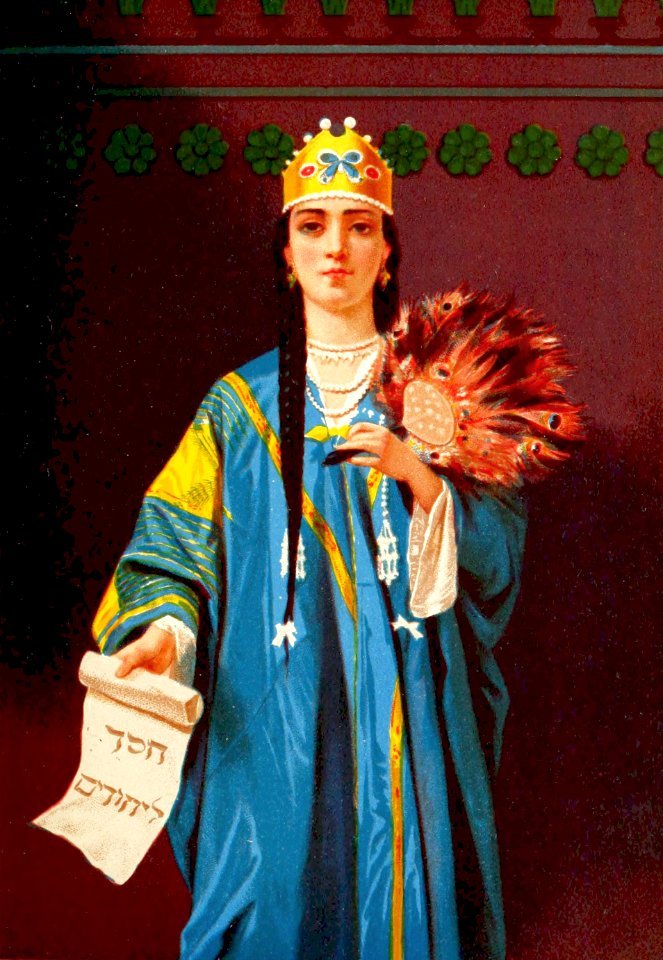THE SEED
“Then Esther sent this reply to Mordecai: “Go, gather together all the Jews who are in Susan, and fast for me. Do not eat or drink for three days, night or day. I and my attendants will fast as you do. When this is done, I will go to the king, even though it is against the law. And if I perish, I perish.” Esther 4:15-16 NIV
No doubt fasting with prayers makes our flesh less powerful and keeps our spirit tuned to be in a relationship with God and receive from Him. It is also very important that when we fast and pray we should search ourselves to know whether we are doing these in the right place and at the appointed time. If Queen Esther had still been under Mordecai’s roof while she was supposed to be in the palace as Queen, even though she fasted and prayed she would not have been able to approach the King the way she did. But because she was destined for that assignment, God made things happen to place her in the position as a Queen. Though it was still dangerous to approach the King because she was at the location that God had prepared for her to be used at that time, her uncle was able to reach out to her to let her know that she could use her position to save her people and God took control of the challenge before her. We make prayers and fast fruitlessly if by our disobedience and worldly lust we are not in the right place in God’s timetable for our life. When we fast and pray in the right place, and at the right time mountains are easier to be moved by prayer through God.
BIBLE READING: Esther 4:1-8
PRAYER: Lord, please help me to always be in the right place in your timetable so that my prayer and fasting will be fruitful. Amen
GBAWE KI O SI GBADURA NIBI TI O YE
IRUGBIN NAA
“Nígbà náà ni Esteri fi èsì yìí ránṣe sí Módékáì pé: “Lọ kó gbogbo àwọn Júù tí ó wà ní Ṣúṣánì jọ, kí o sì gbààwẹ̀ fún mi. Maṣe jẹ tabi mu fun ọjọ mẹta, oru tabi ọsan. Èmi àti àwọn ẹmẹ̀wà mi yóò gbààwẹ̀ bí ẹ ti ń ṣe. Nigbati eyi ba ṣe, Emi yoo lọ si ọdọ ọba, botilẹjẹpe o lodi si ofin. Bí mo bá sì ṣègbé, èmi yóò ṣègbé.” Esítérì 4:15-16
Láìsí àní-àní, gbígbààwẹ̀ pẹ̀lú àdúrà máa ń je kí agbara ẹran ara wa dín kù, ó sì ń je kí ẹ̀mí wa pa dà sí ìrepọ̀ pẹ̀lú Ọlorun ká sì rí gbà lodọ̀ Rẹ̀. Ó tún ṣe pàtàkì gan-an pé nígbà tá a bá ń gbààwẹ̀ tá a sì ń gbàdúrà, a gbodọ̀ yẹ ara wa wò láti mọ̀ bóyá a ń ṣe nǹkan wọ̀nyí ní ibi tó to àti ní àkókò tí a yàn. Ti o ba jẹ pe Ẹsiteri ayaba si wa labẹ orule Modekai nigba ti o yẹ ki o wa ni ààfin gẹgẹ bi ayaba, bi o tilẹ jẹ pe o gbawẹ ti o gbadura, i ba ma le sunmọ ọba bi o ti ṣe. Ṣùgbon nítorí pé a ti Yan an lati se iṣe na, Ọlorun mú kí àwọn nǹkan ṣẹlẹ̀ láti fi í sípò gege bí ayaba. Bó tilẹ̀ je pé ó ṣì léwu láti lọ bá Ọba náà torí pé ibi tí Ọlorun ti pèsè sílẹ̀ fún un láti lò ní àkókò yẹn ló wà, síbẹ̀ ó ṣeé ṣe fún ẹ̀gbon bàbá rẹ̀ láti bá a sọ̀rọ̀ kó lè mọ̀ pé òun lè lo ipò re láti gba awon eniyan re là. Ọlọrun gba iṣakoso ipenija ti n be niwaju rẹ. Awe ati adura wa je lasan ti aigbọran wa ati ifẹkufẹ ti Ara wa ko si ni ibamu pelu Ilana Ọlorun fun aye wa. Nígbà tí a bá gbààwẹ̀ tí a sì ń gbàdúrà ní ibi tí ó to ati ibi ti o ye, àwọn òkè ńlá yóò rọrùn láti si nidi nípasẹ̀ àdúrà ati agbara Ọlorun.
BIBELI KIKA: Esítérì 4:1-8
ADURA: Oluwa, jọwọ ran mi lọwọ lati wa ni aaye ti o tọ nigbagbogbo ninu eto re, ki adura ati awẹ mi le seso rere. Amin
